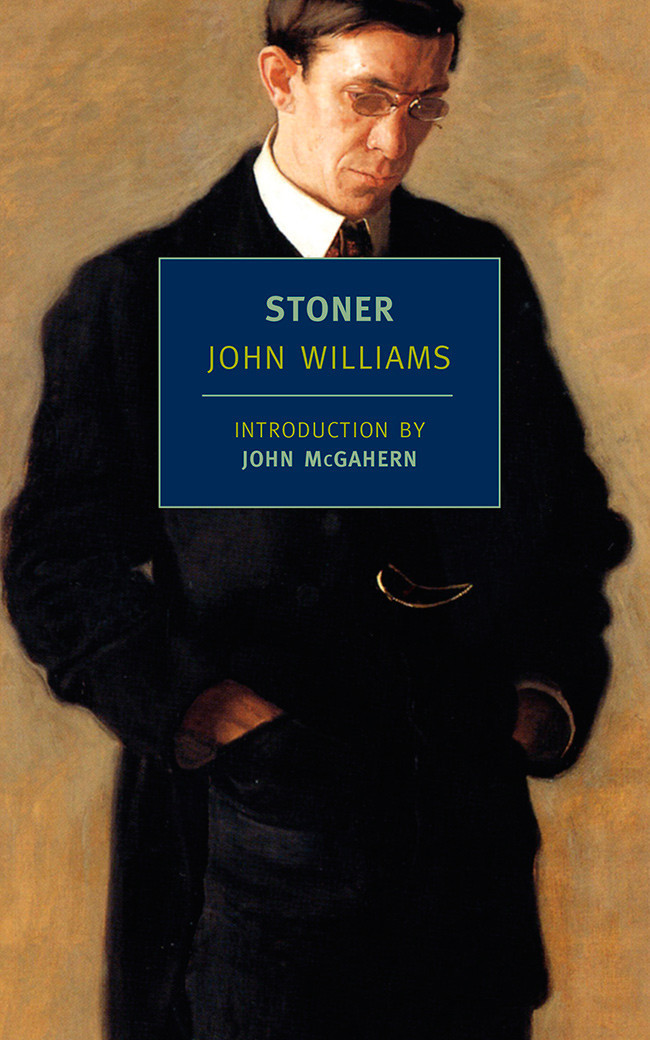John Williams’s STONER was originally published in 1965 with limited success. It went out of print a year later, but, fortunately, it was republished in 2003, and now this classic treasure of a novel can speak to another generation of readers.
Its republication was in itself a literary event. Emma Straub calls the novel “the most beautiful book in the world.” Ian McEwan said, “STONER is a beautiful, sad, utterly convincing account of an entire life. . . . I’m amazed a novel this good escaped general attention for so long.” And Chad Harbach said, “I have read few novels as deep and clear as STONER. It deserves to be called a quiet classic of American literature.”
The novel is a portrait of William Stoner, who experiences small joys and a succession of larger disappointments. Born into a poor Missouri farming family, he is sent to the State College in 1910 to study agronomy. He chooses not to go to war with his friends and suffers from the stigma of going against the flow.
Because he has always been a reader, Stoner takes a literature class at the university. It captures his imagination and inspires him to become a teacher. He enjoys teaching the students but finds his career thwarted by a vengeful head of department. Unsuited for the machinations of the campus, his professional life becomes a series of missed opportunities and disappointments. The novel offers a view of academic life and politics in the first half of the twentieth century.
Stoner’s marriage to a woman from a “good” family estranges him from his own family. He finds no love in his new family, as his wife has been emotionally abused and so abuses him. He has a daughter who brings him much joy, but over time she is swayed by her mother’s feelings, and her relationship with her father becomes strained. Stoner falls in love with a colleague and has an affair, but this, too, ends in sadness.
The author has a real love for his character. Stoner, whose life is full of disappointment and passion, is genuine and feels very real as well as contemporary. Throughout the story, I was taken in by Stoner’s powerful stoicism in light of what life brings him. This is a quiet story, but it has an abundance of feeling. Written in clear and simple prose, it is a tender and truthful portrayal of a man with a passion for literature and a yearning for the life of his dreams. While his life doesn’t quite measure up, he touches many people, and he will touch the heart of the reader as well.







